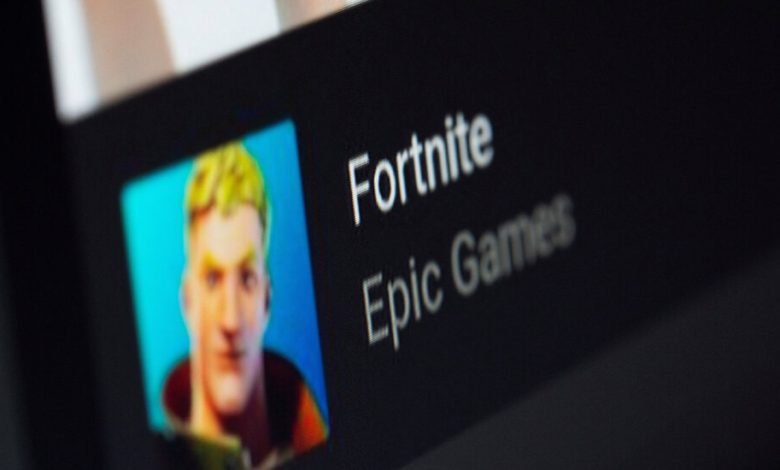Google Loses Antitrust Court Battle With Makers of Fortnite Video Game

A jury ruled on Monday that Google had violated antitrust laws to extract fees and limit competition from Epic Games and other developers on its Play mobile app store, in a case that could rewrite the rules on how thousands of businesses make money on Google’s smartphone operating system, Android.
After deliberating for a little more than three hours, the nine-person federal jury sided with Epic Games on all 11 questions in a monthlong trial that was the latest turn in a three-year legal battle.
The jury in San Francisco found that Epic, the maker of the hit game Fortnite, proved that Google had maintained a monopoly in the smartphone app store market and engaged in anticompetitive conduct that harmed the videogame maker.
Google could be forced to alter its Play Store rules, allowing other companies to offer competing app stores and making it easier for developers to avoid the cut it collects from in-app purchases.
Judge James Donato of the United States District Court for the Northern District of California will decide the remedies needed to address Google’s conduct next year. Google said it would appeal the verdict.
Throughout the trial, Google’s lawyers and executives had argued that it competed against Apple’s App Store, which is more popular in the United States, making it impossible to operate an Android monopoly.
The verdict provided a lift to Epic’s yearslong quest to weaken the power that Google and Apple have over the mobile app ecosystem, and it came two years after Epic mostly lost a similar case against Apple — a ruling that both sides are trying to appeal to the U.S. Supreme Court. That verdict was decided by a judge.
In pursuing the case against Google, filed in 2020, Epic had sought to keep more of the revenue it generates from in-app purchases and offer an app store that would compete with Play on the Android operating system.
Google was fighting Epic’s claims at the same time that it was defending itself in another antitrust trial in Washington, D.C. The Department of Justice and dozens of states have accused the company of illegally maintaining a search and advertising monopoly, in a landmark antitrust case that could reshape tech power when it is decided next year.
On the Play Store, Google charges app makers a 15 percent fee for customer payments for app subscriptions and up to 30 percent for purchases made within popular apps that are downloaded from the store. Google says 99 percent of developers qualify for a fee of 15 percent or lower on in-app purchases.
Google plans to appeal the verdict and will “continue to defend the Android business model,” Wilson White, a Google vice president of government affairs, said in a statement. He added that the trial had “made clear that we compete fiercely with Apple and its App Store, as well as app stores on Android devices and gaming consoles.”
Epic said in a blog post that the verdict was “a win for all app developers and consumers around the world” and “proved that Google’s app store practices are illegal and they abuse their monopoly to extract exorbitant fees, stifle competition and reduce innovation.”
Tim Sweeney, Epic’s chief executive, posted “Free Fortnite!” on X, formerly called Twitter, after the verdict.
Epic instigated the battle with Google, by allowing customers to make in-app purchases directly with Epic, bypassing Google and violating its rules. Google quickly banned Fortnite, and Epic responded by filing the lawsuit.
The jury found that Google had violated antitrust laws in two markets, the Android Play Store and the Android’s in-app billing system. It also found that Google willfully maintained monopoly power, allowing it to impose unreasonable restraints on other market players’ ability to compete.
The jury took issue with Google’s efforts to pay large developers to continue using the Play Store, in an initiative called Project Hug. Epic’s lawyers had painted the effort as “bribes” to major app makers, which Google had denied.
“Such a clear verdict is going to make it much harder for Google to beat it back in post-trial briefing and on appeal,” Paul Swanson, an antitrust lawyer at the firm Holland & Hard, said in an interview. He added that the district court process could wrap up in a few months, and Google’s appeal to the U.S. Court of Appeals for the Ninth Circuit could take 12 to 18 months.
The jury also faulted Google’s agreements with Android phone makers like Samsung, which force them to pre-install Google applications on their devices and establish other rules by which they must abide.
During the trial, Epic’s lawyers said Google had deleted some internal chat messages that may have been relevant to the case, which undercut the search companies’ credibility, Mr. Swanson said.
“Google’s concern was that a jury would look at all of these issues they’ve examined for several weeks and put it through a lens of ‘can I even trust Google?’” Mr. Swanson said. “The stark reality is that Google finally had to face its consumers in the court of law.”



